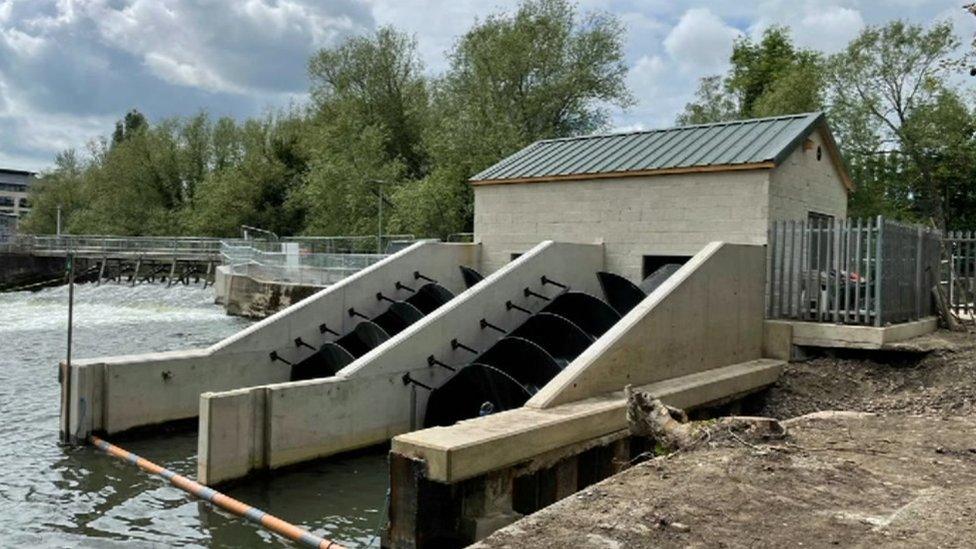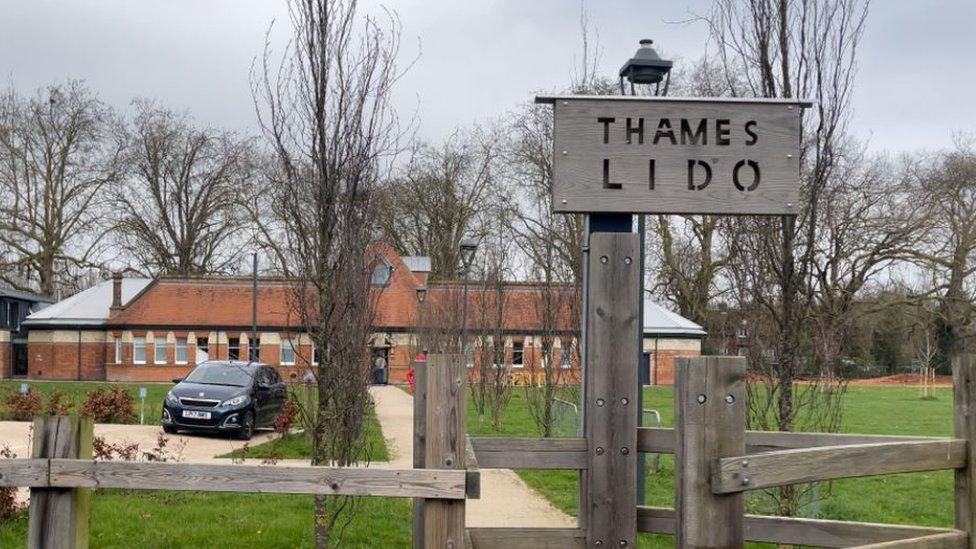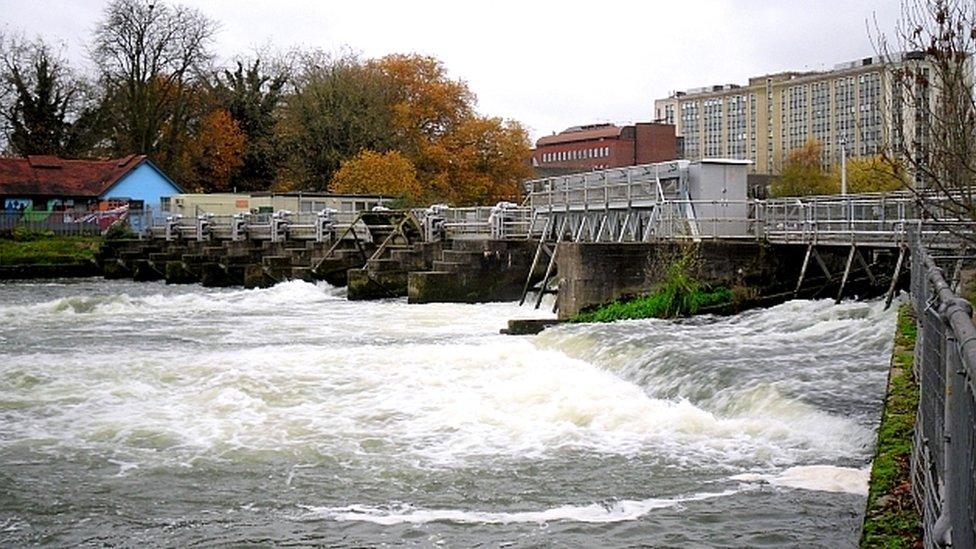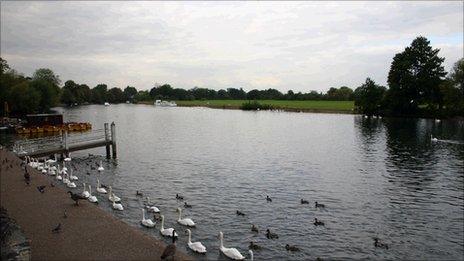Reading hydroelectric scheme to harness power of Thames
- Published

Two turbines beside Caversham Weir in Reading will harness the power of the river
A renewable hydroelectricity scheme to generate power from the the River Thames has been launched in Berkshire.
Two turbines beside Caversham Weir in Reading will harness the power of the river to generate electricity.
The £1.15m scheme - funded mostly by individuals who live in Reading - will sell electricity to Thames Lido.
Reading Hydro CBS said it hoped the project would be a visible working model of how renewable energy can be produced within the town centre.
The scheme hopes to generate 320MWh of power each year - equivalent to the energy needed to supply 90 homes. Any excess electricity will be sold to the National Grid.

The electricty from the Reading Hydro will be used to provide power to Thames Lido
Reading Hydro CBS director Andy Tunstall said the scheme meant over 10 years Thames Lido would be powered using electricity produced using no fossil fuels.
He said: "One of the key things we see this project being able to do is to be a visible working model of how you can produce renewable energy within the town centre, and as such there will be information tours and guided tours available."
Based at View Island, a turbine house is home to generators, and a cable has been laid under the river to Thames Lido.
The income from selling electricity will be used to maintain the scheme and gradually repay shareholders.
As a community benefit society, any surplus will be used to offer grants to local carbon-cutting and sustainability projects, and the scheme will eventually become a community asset after it pays back its investors.
Reading Hydro added the turbines would not harm fish, and an additional pass would help fish and eels move up the river.
The hydro scheme marks a return to water power in the area, as various mills were based on View Island for hundreds of years before they were decommissioned and demolished.

Follow BBC South on Facebook, external, Twitter, external, or Instagram, external. Send your story ideas to south.newsonline@bbc.co.uk, external.
Related topics
- Published19 May 2017

- Published30 April 2011
